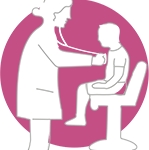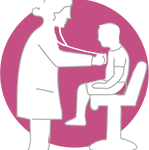SPECIALITIES
Care like no other.
At Motherhood, care is not something you hear. It’s something you feel.
- Care that makes a woman feel understood and comforted.
- Care that turns anxiety into confidence for moms-to-be.
- Care that reassures a mother that her child is well.
- Care that comes from listening and goes the extra mile.
- At Motherhood, care is not something you hear. It’s something you feel.
- Care that makes a woman feel understood and comforted.
- Care that turns anxiety into confidence for moms-to-be.
- Care that reassures a mother that her child is well.
- Care that comes from listening. And goes the extra mile.
- End-to-end care, for every woman, mother and child.

Best Women & Child Care Hospital in India

Cities
0

Hospitals & Clinics
0

Fertility & IVF Centres
0

Doctors
0
+

Happy Patients
0
+
AWARDS
After our customers, our awards speak for us. We have devoted ourselves to you for over a decade to make sure that you receive nothing less than the best, because you deserve the finest standards of gynaecology, maternity, and paediatrics. Likewise, if we go by all the healthcare trophies we have won, it looks like caring can be pretty rewarding too.


















×

Book An Appointment With Expert Doctors In Motherhood Hospitals

Thank you for submitting. We will connect with you soon.














































